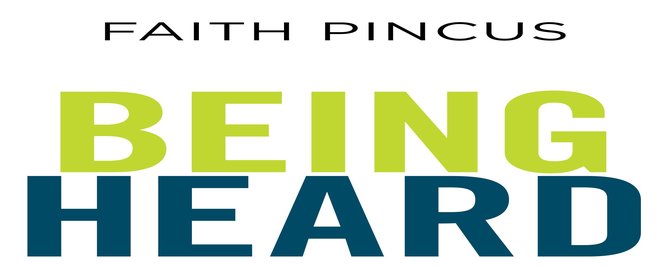Home/Intermediate/Advanced
Persuasive Appellate Brief Writing (WA) [Two-Part Webinar] (OnDemand Streaming and Recorded Packages)
Audio program! (check our CLE Programs page for live versions)
Discounted rates are available for 2-4 attorneys at your firm. Licenses are available for law firms or agencies that would like to distribute the video package or OnDemand Streaming access to more than four attorneys at their firm or agency. Email us at info@pincusproed.com for more information.
COURSE SUMMARY:
This Two Part Webinar of those programs that you really cannot miss if you want to improve your brief writing and learn how to convince the court more effectively – regardless of your experience level. While there will be some review of the basics, the bulk of the course is centered around providing you with practical advice and an inside look at what judges find persuasive, designed by appellate judges and commissioners.
The seminar will show you how to draft a clear – and persuasive – appellate brief in the Washington state appellate courts (much advice will also apply to Federal Court, with the exception of the discussions regarding WA state rules and case law).
Taught by former WA Supreme Court Justice Phil Talmadge, Appellate Judge Leonard Feldman, multiple appellate commissioners and top-notch appellate practitioners, this program is guaranteed to give you new insight and ideas and improve your writing.
Through expert instruction – including an AI writing demonstration and hands-on exercises – you’ll learn:
- Best practices for issue selection and structuring your argument
- Strategies for making the court want to rule in your favor
- How to make your brief stand out
- Briefing rules, standards of review, and common appellate brief writing pitfalls
- How to effectively use the record and statement of facts
Your faculty will provide concrete and practical tips throughout the program.
And during Part 2, appellate commissioners Jennifer Koh and Hailey Landrus, as well as an experienced practitioner, will focus on your writing exercises, which will be provided in advance. They will provide examples, discuss the what worked and what did not work in the exercise provided to them by attendees, ask questions of the attendees, and also provide an AI writing demonstration. Attendees will have the opportunity to answer questions orally, answer polls, and ask questions via the Q/A box or orally as well.
Your outstanding faculty have spoken in the past to rave reviews.
If you write appellate briefs, you do not want to miss this program. You cannot get this much advice, organized and presented carefully, anywhere else – especially with this many folks teaching from the bench.
All types of attorneys – regardless of experience level – will gain invaluable insight into effective legal writing from the perspective of appellate judges and long-term appellate attorneys (criminal and civil).
Sponsored by:
If you cannot attend the program live, OnDemand Streaming and Recorded Packages are available. One person per order may view the recording.
Discounted rates are available for 2-4 attorneys watching via OnDemand at your firm or agency.
Licenses are available for law firms or agencies that would like OnDemand Streaming for more than four attorneys.
This two-part webinar was recorded live on June 24 & July 1, 2025 and the recording will be available to watch via On-Demand or via a Recorded Package Download approximately 1-3 weeks after the live seminar is completed.
OnDemand Streaming of the recording: On-Demand Streaming allows for a single person to view the seminar unlimited times until one year after the seminar is held.
Recorded Packages: Recorded Packages allow for a single person to download and view the program recording and are also available via DVD or CD. Note: All downloads must be downloaded to a computer first, before transferring them to another device.
Recorded Packages or On-Demand streaming are one per person per order and include seminar materials. They are available approximately two weeks after the live program ends. If you need access to the recording sooner than that, please let us know and we’ll provide you with a temporary zoom streaming link in the interim.
* The Video Package includes the video recording of the webinar (including sound of course). The Audio Package is a separate audio-only recorded package, for those who wish to listen to it without visuals (such as in the car).
Improve your presentation skills!
Are you interested in improving your presentation skills in or out of court? There’s no better moment than now to take action! You’ll find Faith Pincus’ book, “Being Heard: Presentation Skills for Attorneys,” published by the ABA invaluable when it comes to improving your presentation skills.
To order a signed paperback directly from us at a discounted price, including free shipping, click here. The book is also conveniently available on Amazon in both Kindle and paperback formats.
You can also order her DVDs teaching presentation skills – for attorneys or in a corporate setting – here. Faith has been training attorneys and executives in presentation skills, including coaching, since 1989. Don’t miss this opportunity to improve your presentation skills.
Be Heard. This time. Next time. Every time.
What You Will Learn
This Two Part Webinar
Part 1: Tuesday, June 24, 2025
1:00 p.m. – 4:45 p.m. Pacific Time
1:00 p.m. – 1:20 p.m.
Being Aware of the Audience for the Submission
Philip Talmadge
- Motions for Discretionary Review (RAP 2.3)
- Merits Briefs – Court of Appeals/Supreme Court
- Petitions for Review (RAP 13.4)
- Motions for Reconsideration/Publication
1:20 p.m. – 1:50 p.m.
Selecting the Issues on Appeal
Aaron Orheim
- Not all issues raised in the trial court can, or should, be argued on appeal
- How should counsel select the issues?
- Creating your Checklist
1:50 p.m. – 2:35 p.m.
Building Blocks to an Effective Appellate Pleading
Hon. Aurora Bearse and Hon. Leonard Feldman
- Persuasive (and efficient!) analysis structure
- How do you want your analysis to go?
- CREAC/IREAC
- Common mistakes brief writers make in the “explanation of the rule” and “application” portions of the analysis
- How to efficiently address counter-arguments
- RAP format requirements/court best practices
2:35 p.m. – 2:50 p.m.
Break
2:50 p.m. – 4:00 p.m.
Convincing The Court to Want to Rule in Your Favor
Hon. Hailey Landrus and Hon. Jennifer Koh
- Using fundamental principles as persuasive tools—yet another checklist
- The hard part: Tips for predicting what concerns judges might have with your argument and then addressing those concerns
- A strong first impression: Roadmap for an effective introduction
4:00 p.m. – 4:30 p.m.
Ethical Issues in Brief Writing
Philip Talmadge
- Ethical obligations under RPC 3.1/RAP 18.9(a)
- Client explanation of issues on appeal
- RPC 3.3 requirements regarding citing authorities and extra-record material
4:30 p.m. – 4:45 p.m.
Final Questions and discussion re: Exercises to be discussed during Part 2 (Thursday).
Speakers will explain and discuss the exercises that were distributed in the Handout (one week prior to today) will answer questions related to the exercises. Please submit exercises by Wednesday, June 25 at noon.
Part 2: Tuesday, July 1, 2025
1:00 p.m. – 4:45 p.m. Pacific Time
Exercises and demonstrations!
Faculty: Commissioner Hailey Landrus, Commissioner Jennifer Koh and Cat Clark
During Part 2, your faculty will walk through a sample of the exercises submitted in advance by the attorneys attending the program. They will also provide their own samples. They will ask questions of the attendees, who will be able to answer orally or via the q/a bot. Your faculty will also do a demonstration of how AI can be used, and should not be used, when drafting an appellate brief and how the courts are, or are not, using AI.
Attorneys watching the recording will have access to the exercises used and discussed during the live program, but will not be able to submit the exercises, since they will be watching the program after it has been held.
Topics covered in exercises will include:
- Using legal AI programs in your research and writing – ethically and effectively
- Case highlights and issues
- Ideal Introduction and review pre-submitted exercises from attendees
- Argument Headings
- Argument
- Standard and Scope of Review
- Citing and Using Authority
- Persuasive and Unpersuasive Arguments
- Drafting the Conclusion
- Reply Briefs
- Final Writing Tips
- Final Questions
Sponsored by:
Testimonials
“Useful, practical information that I can put into practice immediately.” – Gregory Vernon, Esq.
“I learned a lot of new strategies on how to organize and draft my briefs. As a newer attorney, I want to be the best writer and communicator I can be. This training was definitely a step in the right direction.” – Jerry Thomas, Esq.
“It was great to receive feedback on my draft/outline to incorporate into my brief right away.” – Jerry Thomas, Esq.
“Excellent program, excellent speakers. Very educational program. Learned some new skills and techniques.” – Dan Young, Esq.
“I found it very useful and informative and thought the time was used well.” – Ashleen O’Brien, Esq.
“Very informative and helpful. I enjoyed a more in-depth view of the brief writing (and reading) process.” – Sophia Palmer, Esq.
“Very informative and think that getting many different judges’ perspectives is really helpful to get a better idea of the reader and what is effective for that reader. A lot of good stuff. I really enjoy the focus on the basics. Can forget a lot of the smaller things – but they make such a huge difference in being a better writer.” – Ryan Pittman, Esq.
“Extremely useful, presenters are obviously knowledgeable, experienced, and skilled. Very worthwhile and informative.” – Ben Milgrom, Esq.
“Informative. Helpful to have feedback from judges regarding what they like to see. Learned more about strategy and starting out from scratch on appellate briefs. Very helpful in terms of strategies, particularly in drafting reply briefs when opposing counsel might tend to mess with the flow of the case.” – Peter Durland, Esq.
“This program felt very informative and easy to follow along with. I do a large majority of the appellate writing at my office and learned several tips I had not considered.” – Chloe Grundmeier, Esq.
“Excellent presentation, with great tips and practical advice from the panelists.” – Michael H. Jones, Esq.
“The program was really great. I took away several useful tools that I will employ in my practice on a regular basis. The presentations were very informative and not repetitive of other legal writing trainings I have received.” – Lauren R. Kirigin, Esq.
“Absolutely excellent presentations and substance. Excellent and highly informative even for those of us who appear before appellate courts regularly.” – Duana Kolouskova, Esq.
“It was very helpful and the tips and tricks were beneficial.” – Elena Gutbrod, Esq.
“Very helpful, practical. I am already using many of the tips.” – Tami Arntzen, Esq.
“The interactive writing workshop was packed with information and provided many tips that I’ll be applying in my writing.” – Isaac Prevost, Esq.
“It was very informative. This program was really well done. Great presentations.” – Whitman Koch, Esq.
“Thought it was great and informative, nice to get a glimpse behind the veil from the commissioners.” – Michael Tracy, Esq.
“Reinforced what I already knew and practiced and provided new information I hadn’t considered.”
“I have a lot of experience in legal writing, and I really in particular enjoyed the being aware of the audience section since I did not clerk, and the Convincing the Court to Rule in your favor because it addressed ideas I have not encountered before.”
“I enjoyed hearing from Talmadge and Feldman because my self-identified weak points are introductions and petitions for review.”
“I thought Judge Feldman’s comments were most helpful regarding tables and the introduction ‘and summary of the argument.’ I liked the ‘deep issue’ discussion. As usual, Justice Talmadge did a great job dealing with basics. It was worthwhile as a check list for analysis.”
“I thought the program was wonderful. It was great to hear from Commissioners who read our briefs every day and provide feedback on what is most important to them.”
“It was great to receive feedback on my draft/outline to incorporate into my brief right away.”
“I appreciated many parts of the program, especially the feedback from the presenters on our submitted assignments. Tons of useful information I can put to work immediately.”
“It was very informative and as a new attorney gave me the basic building blocks I need.”
“Overall, very good. Phil Talmadge in particular provides very useful information.”
“Overall, the topics covered flow together well, and the level of detail is excellent for each section.”
“Very informative. Good format with questions and answers. The speakers were very knowledgeable and had information that I can incorporate into my writing immediately.”
“Very informative, and extremely helpful for organizing my approach to appellate briefing. I needed advice and practical tips on organization and persuasive principles or tools (analytic approaches). Also, the ethics section was really informative.”
“Part 1 was very helpful in that it provided examples of the tips and recommendations given by the speakers. As a newer attorney just getting started in appellate work this CLE was beneficial in hearing from ‘the appellate audience’ what is and isn’t actually persuasive.”
“The writing tips and insights are always helpful.”
“I wanted more information on persuasive appellate writing and got exactly that!”
“I agree wholeheartedly with the quote given, “Effective writing is a lifetime goal, never a final accomplishment.” I feel like this program moved me toward the goal.”
“I really enjoyed this and learned some new tips.”
“Good program, the presenters obviously put a lot of work into it.”
“Helpful and covered good content.”
“The program materials were good and I appreciated comments from appellate judges.”
“Truly excellent. I haven’t had a better CLE.”
“Good content.”
“In general, this was very informative and entertaining. Worth the money. I’m a beginner to the appellate field so it was good to have a broad overview.”
“Very informative and helpful.”
“Very informative.”
“Great presenters who provided info that was easy to understand and could see myself applying their advice.”
“Informative and interesting.”
“The program provided very useful tools to work with to improve my briefing.”
“Day 1 in particular had very useful, helpful information.”
“I benefitted from the hands-on approach to today’s presentation. Also helped to see how others tackled the writing assignments.”
“I found this day insightful, especially the few presentations.”
“Overall, very good.”
“Very helpful!”
“Overall helpful.”
“Thank you and the presenters for the program.”
“Good tips, insight into what the court wants to see.”
“I was able to put some of the information and ideas to use immediately to improve a brief I’m filing tomorrow.”
“Was exposed to a lot of information that will be helpful.”
“I liked the detail on the substance of the brief. especially when it came down to the organization.”
“I thought the speakers were wonderful, and I appreciated the enthusiasm, kindness, and candor.” – Madilyn Bates, Esq.
“I really liked the subject matter and thought the speakers were excellent!” – Alexandra Manno, Esq.
“Well organized, great delivery, concise and informative material. Thank you!” – Melody Claire Tucker, Esq.
“I am especially grateful for time and valuable insights from the two judges on the panel. I appreciate their willingness to continue to help train bar members to do a better job for our clients (and side benefit to make their jobs easier). Their perspective was particularly invaluable.”
“Loved the topics, the clear examples, and how knowledgeable the speakers were.” –Sydney Phillips, Esq.
“This was incredibly helpful for me. The examples given in the case study helped me understand the advice being given; a lot of times you know you can do something better, but don’t know exactly how, so I appreciated being shown some examples of how.”
“It was a good program. Helpful to hear a judge’s perspective.” – Ashley Karlstad, Esq.
“It was useful and provided a good discussion of fundamental issues in appellate advocacy.”
“Very, very helpful. I appreciated the specific tips and suggestions, materials to refer back to, and interactive exercise to apply what we learn.”
“Excellent program and excellent speakers.” – Kelly J. Faust Sovar, Esq.
“The program itself was great, precisely as advertised, and great speakers with inside information about appellate processes.”
“The thematic checklist is an excellent tool.” – David Spellman, Esq.
“Incredible panel and presentation of material.” – Kirsten A. Schultz, Esq.
“I thought it was very practical. I appreciated the segment where we reviewed two briefs and an opinion together to identify application of the fundamental principles.”
“Love that it was a half day and that you had very high-level speakers.” – Pamela Rohr, Esq.
“Kudos to the speakers for taking the time to be well organized and coordinated. Almost seamless!”
“All the speakers were excellent. I particularly appreciated the two judges, who were excellent and had put a lot of effort into their preparation.”
“I appreciated the speakers’ willingness to give specific advice and examples. Great panel!”
“Quality presentations.” – Todd Renda, Esq.
“High quality!” – Dennis Morgan, Esq.
“There were some great pearls of wisdom, I particularly liked Judge Glasgow’s framework of core values/fundamentals.”
“It was a very good program. Always good to hear Phil Talmadge.”
“Great topics, presentation, and speakers.”
“The speakers were all fantastic.”
“Great program; good speakers.”
“Just fantastic. Thank you!”
“Great work!”
“Very helpful.”
“Very well-run, right pace, good differing opinions and references to mtls.”
“Great speakers, it was highly informative and well prepared.”
“Speakers were great.”
“Informative program. Great speakers.”
“Very informative, I enjoyed it and learned a lot.”
“Great program!”
“Good job on general concepts.”
“It was great!”
“Good flow, good timing, exceptional speakers.”
“The examples of the briefs in the GMA case were really helpful.”
“Great speakers and good content.”
“Excellent.”
“Wonderful program.”
“Excellent program.”
Faculty
Hon. Leonard J. Feldman
Judge
Washington State Court of Appeals, Division I
Judge Leonard J. Feldman was appointed to the Washington Court of Appeals by Governor Jay Inslee in March 2023. Before joining the court, Judge Feldman practiced as a litigation attorney at Heller Ehrman (1992-2008), Stoel Rives (2008-14), and Peterson Wampold Rosato Feldman & Luna (2014-23). As an attorney, Judge Feldman focused on appellate practice before the Ninth Circuit and the Washington appellate courts. He was counsel of record and argued in the United States Supreme Court in City and County of San Francisco v. Sheehan (2015) and County of Los Angeles v. Mendez (2017). From 1991-92, he served as a law clerk to Judge Jerome Farris of the United States Court of Appeals for the Ninth Circuit.
Judge Feldman currently teaches torts at Seattle University School of Law. He was nominated to receive the Outstanding Faculty Award in 2021 and 2023 and is a co-author of Keeton, Sargentich, Keating, Fleming, and Feldman’s Tort and Accident Law (5th ed. 2023). He is also a frequent writer and speaker on topics relating to appellate practice. Among other articles, he has co-authored three articles with Washington Court of Appeals Judge Stephen Dwyer regarding appellate brief writing, oral argument, and discretionary review.
In 2006, Judge Feldman received the Washington State Bar Association’s Pro Bono Award for his work in appeals that raise important civil rights issues. He has also received two Certificates of Appreciation from the Ninth Circuit, one for his work as a District Coordinator for the Ninth Circuit Pro Bono Program and the other for teaching an appellate practice course at the University of Washington School of Law.
Judge Feldman received his undergraduate degree from the University of Washington in 1987. In 1991, he received his law degree from Harvard Law School, where he was twice awarded the Sears Prize (given to the top two students on the basis of grades) and graduated magna cum laude. Judge Feldman and his wife have lived most of their lives in the Seattle area, where they currently reside.
Hon. Aurora R. Bearse
Commissioner
Washington Court of Appeals, Division II
Commissioner Aurora R. Bearse was appointed as a Court Commissioner for Division Two of the Court of Appeals, effective May 1, 2012. Prior to her appointment, Commissioner Bearse served as an administrative law judge for the Washington State Office of Administrative Hearings. She has also served as a staff attorney for Division Two of the Court of Appeals, as an assistant appellate federal public defender in the Fifth Circuit, as an associate attorney at Weil, Gotshal & Manges (New York and Houston offices), and as a judicial law clerk for Judge Robert R. Beezer (9th Circuit) and Judge William H. Walls (DNJ).
Commissioner Bearse graduated with honors from Rutgers-Newark School of Law. She was the senior articles editor of the Rutgers Law Review. She holds a bachelor’s degree in Religion & History from Rutgers University. She currently is a volunteer judicial member of the WSBA’s Access to Justice Board Rules Committee. Before joining Division Two, she served as president and executive board member of the Seattle Children’s Autism Guild, an all-volunteer organization that raises funds for the Autism Center at Seattle Children’s Hospital. She continues to volunteer with various autism-related organizations to support people with autism and their families.
Hon. Jennifer D. Koh
Commissioner
Washington State Court of Appeals, Division I
Commissioner Jennifer D. Koh was appointed by the Court of Appeals Division One, effective March 2, 2020. Before her appointment, Commissioner Koh focused on appellate practice as Of Counsel with Fain Anderson Vanderhoef Rosendahl O’Halloran Spillane PLLC, served as a staff attorney for Division I, practiced as a trial and appellate attorney in municipal public defense and other criminal and civil matters with a small Seattle law firm, and worked as an associate attorney in employment, education, and labor law in the Bellevue office of a large Seattle firm. Commissioner Koh graduated from the Yale Law School and holds a bachelor’s degree in political science from the University of Washington. Commissioner Koh grew up in West Seattle, where she lives with her husband and three children.
Hon. Hailey Landrus
Commissioner
Washington State Court of Appeals, Division III
Commissioner Hailey Landrus serves as a court commissioner at Division III of the Washington State Court of Appeals. Before she became a judicial officer, Commissioner Landrus practiced general civil litigation, taking on a broad range of cases in areas of law including appellate, family, juvenile dependency, business/partnership, real property, administrative, guardianship, probate, employment, and insurance subrogation, while also doing simple estate planning work. She recently returned to Division III where she began her legal career as a judicial law clerk for now-retired Judge Dennis J. Sweeney. Commissioner Landrus is a graduate of Seattle University School of Law and Washington State University.
Catherine C. Clark, Esq.
Law Office of Catherine C. Clark PLLC 
Catherine C. Clark, or “Cat” as she is also known, is a graduate of the University of Washington and Gonzaga University School of Law. Cat attended the UW on an athletic scholarship (Swimming) where she earned four varsity letters and academic honors. While at the UW, She majored in history and political science. She attended Gonzaga University School of Law where she was also on the law review. Once she finished law school, Cat clerked for Justice Robert F. Brachtenbach (ret.) of the Washington Supreme Court in Olympia. She finished that position and went into the private sector and has practiced law since. She is a litigator and regularly appears in the trial courts and appellate courts in Washington State. She has received the Super Lawyer recognition beginning in 2011, is AV Rated by Martindale Hubble, has been recognized by Best Lawyers of America beginning in 2016, was recognized as a “Rising Star in Washington Law” (when she was young) and has been awarded the Best in CLE by the Washington State Bar Association. Cat is an avid skier, walker, DaWg lover and dabbles, or doodles, in the arts.
Aaron P. Orheim, Esq.
Aaron Orheim is an appellate attorney at Talmadge/Fitzpatrick, specializing in civil appeals. Before joining Talmadge/Fitzpatrick, Aaron clerked for the late Justice Susan Owens at the Washington State Supreme Court and worked for the Washington Attorney General’s Office in its Juvenile Litigation and Torts Divisions. Aaron has argued cases in the Washington Supreme Court, the Ninth Circuit, and all three divisions of the Washington Court of Appeals.
Aaron has presented several CLEs on appellate topics, co-authored the appeals chapter of the most recent Washington State Association for Justice Medical Negligence Deskbook, and has been recognized by Thompson Reuters’s Super Lawyers.
Aaron graduated summa cum laude from Seattle University with a B.A. in Political Science in and with honors from the University of Washington School of Law.
Philip Talmadge, Esq.
Founder
Talmadge/Fitzpatrick
Phil Talmadge is a former Washington Supreme Court Justice.
He is a member of the American Academy of Appellate Lawyers and the Washington State Appellate Lawyers Association. Phil has been named Super Lawyer in Washington Law & Politics every year since 1976 and was a Washington State Senator.
He practices exclusively in the areas of Appellate Law and Attorney Ethics. Phil received his B.A. from Yale University and his J.D. from the University of Washington and has been an attorney since 1976.
Fees
Discounted rates are available for 3-4 attorneys watching Live or watching the recording via OnDemand at your firm or agency. Licenses are available for law firms or agencies that would like OnDemand Streaming for more than four attorneys. Please contact us at info@pincusproed.com or (877) 858-3848.
Seminar Materials are included with recorded OnDemand viewing and all recorded package options.
Recorded OnDemand Streaming! Recorded On-Demand Streaming allows for a single person to view the recorded seminar on their own schedule unlimited times on any device until one year after the seminar is held. This option is to watch the recorded program on your own schedule. If you or your attorney want to watch the program live, please press the back button and register to attend the program live.
Recorded Downloads and DVD/CD Packages! Recorded Packages allow for a single person to download and view the program recording and are also available via DVD or CD.
Discounted rates are available for 2-4 attorneys at your firm. Licenses are available for law firms or agencies that would like to distribute the video package or OnDemand Streaming access to more than four attorneys at their firm or agency.
This Two Part Webinar Fees:
Recorded OnDemand Streaming: $429
Recorded Packages via Download or CD/DVDs:
Video Recording – DVD or Download: $429
Audio Only (for in your car, etc.) Recording – CD or Download: $429
Order both the Video and Audio Only Packages for only $50 more – Download, DVD or CD: $479
$10 shipping and sales tax (in California) are added at checkout to DVD/CD orders.
This two-part webinar was recorded live on June 24 & July 1, 2025. Because we record our seminars live and they are edited, OnDemand Streaming and Recorded Packages are available approximately two to three weeks after the seminar is held.
Your OnDemand access is good for up to one-year from the time of purchase. Please be sure to select OnDemand Streaming to the right and check out. OnDemand can be watched from any type of device.
*The Video recording is a video of the webinar (with sound). The Audio Only recording are audio files only and are for those who wish to listen to it without watching a video (such as in the car or while walking).
Note: OnDemand Streaming can be watched from any device. However, all download packages must be downloaded to a computer first, before transferring them to another device due to downloading as zip files containing both the video/audio and a large folder with seminar materials contained in the download package.
CLE Credit
WA: This program is approved for 6.75 units of Law and Legal Credits in Washington (Expires: 06/23/30).
WA Ethics: This program is approved for 0.50 units of Ethics General Credit in Washington (Expires: 06/23/30).
OR General: This program is approved for 6.50 units of General credit in Oregon. (Expires: 06/23/28)
OR Ethics: This program is approved for 0.50 units of Ethics credit in Oregon. (Expires: 06/23/28)
CA General: This program is approved for 7.00 units of General CLE in California.
CA Legal Ethics: This program is approved for 0.5 units of Legal Ethics CLE in California.
CA Participatory Certified Legal Specialist: This program is approved for 7.00 units of Certified Legal Specialist CLE in California in Appellate Law. (Expires 06/23/2027)
CA Self Study (only) Certified Legal Specialist: This program is approved for 7.00 units of Certified Legal Specialist CLE in California in Appellate Law. (Expires 06/23/2030)
NY General: This course is eligible for approval, under New York’s CLE Approved Jurisdiction policy, for 7.00 CLE units. Pincus Professional Education is a CA Accredited Provider, which is a NY approved jurisdiction. See Section 6 of the New York State CLE Board Regulations and Guidelines for further information.
$429.00 – $479.00 each
Recorded on June 24 & July 1, 2025.







